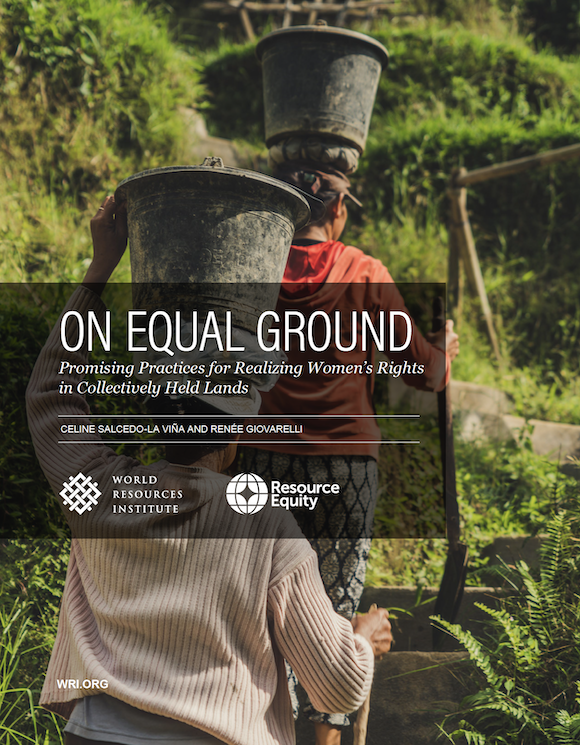Resource information
Sustainable land governance requires that all members of a community, both women and men, have equal rights and say in decisions that affect their collectively-held lands. Unfortunately, women around the world have less land ownership and weaker land rights than men – but this can change, and this report shows ways how that can be done. The report serves as a valuable guide to realizing more gender-equitable collective land tenure systems by detailing case studies from five communities around the world showing promising approaches to securing equal tenure rights for women and the conditions that enabled these communities to do so. When women have rights and a seat at the table, outcomes such as increased livelihoods and income, improved forest cover, restored land, improved biodiversity are more likely.
Key Findings:
- Equal and secure land rights for women are integral to attaining global development outcomes and a more gender-equitable and sustainable world.
- In collectively held lands, women have secure tenure when collective land tenure is legally recognized and enforceable, and women can claim and exercise rights equally with men, including the right to use and benefit from the lands and resources and participate in their governance.
- Laws devolving control over common resources to local communities, when they mandate gender-inclusion, pave the way for women to gain tenure rights where previously they had secondary or no rights.
- Women’s participation in communal land and resource governance is a key aspect of tenure security; where their participation is nascent or weak, women should be supported through capacity-building activities and by sensitizing men to the benefit of gender-inclusive decision-making.
- While there is no one-size-fits-all formula applicable to different contexts, universally, interventions to secure women’s land tenure must be carried out at multiple levels and in an interlinked manner, targeting both the structural framework that ensures that women have rights and the operational environment that creates the conditions for women to be able to realize rights.



